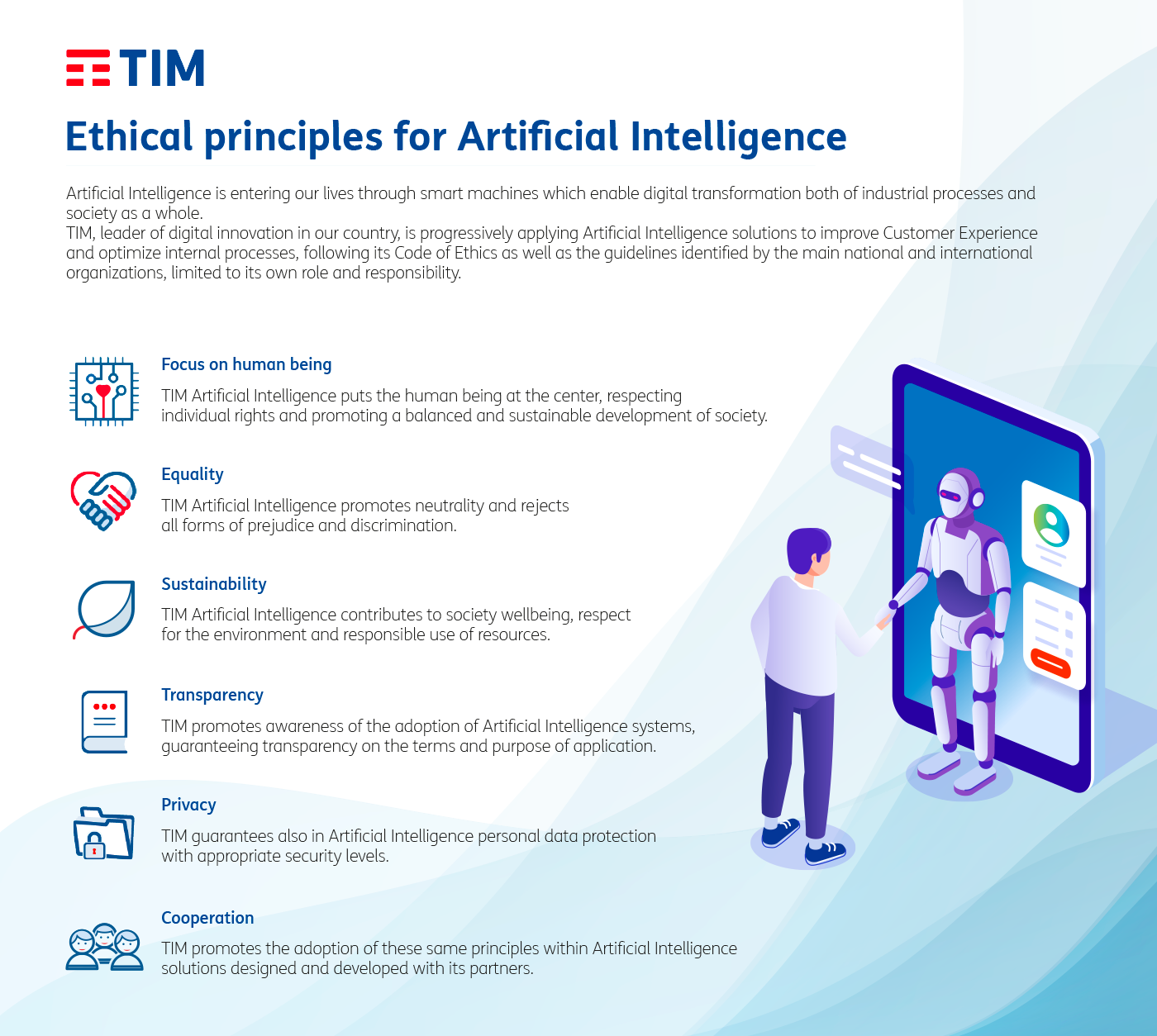Imagining the future of businesses, work and society means getting to grips with the developing technology that more than any other is transforming the world we live in: artificial intelligence. From medicine to robotics, from industry 4.0 to the future of self-driving cars and Smart Cities, there is no field that cannot be revolutionised by the most important innovation since electricity.
But the possibilities of artificial intelligence play a crucial role in telecom. Companies like TIM, for example, can exploit deep learning algorithms to optimise their processes, manage and automate their interactions with customers (for ever more personalised and efficient customer experience), react in real time to unforeseen events (crucial in cybersecurity, to take just one example) and much more besides.
The central role of big data
But if the engine in artificial intelligence is deep learning algorithms, the petrol that fuels them is big data, which once gathered and processed, can uncover correlations invisible to the human eyes. But where does this data come from?
That is simple. It comes from our online activity: interactions on social media, online shopping, Google searches, movements tracked on smartphones and even the temperature on our smart thermostat. Everything we do online, or on devices connected to the internet, leaves digital traces that can be used to personalise and optimise processes. And that is not all. In a future where all objects are connected to the Internet of Things, the data we use will grow exponentially. All fine, then? Not quite. Managing such a mass of data (much of it personal and private) demands competence, discretion, respect for users and the ability to properly manage the flows of big data. When these qualities are lacking, danger lurks just around the corner. Customers' data can be used as a weapon against them, as Tim Cook himself has warned.
The Apple CEO is one of many to have cautioned against the abuse of personal data. “Defending privacy means defending the unique nature of every individual. Having zero privacy is like being a butterfly that's caught and pinned up on display,” declared Oxford philosopher Luciano Floridi at a conference. In very brief summary, there are three guarantees that must absolutely be made by those who wish to gather and process the data of millions of users: respect for privacy, transparency and proper use of big data. If these guarantees are not upheld, customers' trust may be betrayed and black boxes (algorithms whose actions cannot be explained) created, spawning what are increasingly known as “algorithmic biases”, caused by improper use of data, with awful results (as the computer scientists say, “If you put in rubbish, rubbish is what's going to come out.”).
A further and increasingly evident spanner in the works is that the companies most at risk are often those whose core business is big data. OTT platforms, whose very being depends on big data (social networks, e-commerce platforms, search engines and many others), are forced to extract a growing quantity of data and find new uses all the time for the information they find. Their business model is based largely on ever more pervasive data collection, which risks becoming less than transparent, violating privacy and being misused, as numerous cases of discrimination and abuse by digital giants have shown.



